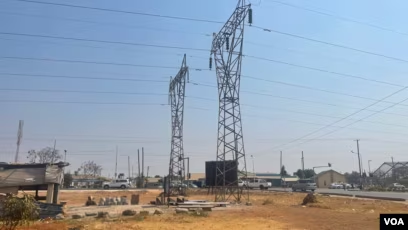Zambia is facing its worst drought in 20 years, resulting in severe power outages lasting up to 21 hours a day.
The drought has crippled Zambia’s hydropower generation, which accounts for about 85% of the country’s energy supply.
This has made it challenging for businesses to operate, with many struggling to meet contractual obligations. Households are also feeling the pinch, receiving only three hours of electricity per day.
The Zambia Association of Manufacturers also reported that its members are struggling to cope, with big companies facing high costs for running alternative diesel-powered generators.
- Advertisement -
Small companies are particularly vulnerable, with some forced to shut down due to the high cost of alternative energy sources.
On Monday, ZESCO, Zambia’s only public power utility company, reported insufficient power supply to all hospitals, leading to some hospitals turning patients away due to lack of electricity and water.
Despite the government’s efforts to protect the mining sector, which contributes about 70% of Zambia’s export earnings, ZESCO has imposed emergency restrictions, cutting 40% of mines’ normal electricity supply. Companies are, therefore, using more costly regional electricity sources to fill the shortfall.
First Quantum, a company responsible for about half of Zambia’s copper production and operating Africa’s largest nickel mine, has sought power from South Africa’s Eskom Holdings SOC Ltd., a company that is only now recovering after struggling to meet electricity demand in its country.
The government is working to address the energy crisis by promoting alternative sources of energy. New measures, such as removing bureaucratic hurdles, aim to encourage private companies to invest in energy production. According to Energy Expert Johnstone Chikwanda, these measures are expected to yield results in the near future.
- Advertisement -
Additionally, a regional electricity trading company, Africa GreenCo, is facilitating power imports to mitigate the crisis. A new gas-fired power plant in Mozambique is expected to add 450 megawatts to the regional grid by early 2025.
Notwithstanding, Zesco anticipates a deficit for at least the rest of 2024. That will harm Zambia’s economic growth, which the government previously estimated will drop to 2.3% this year.










